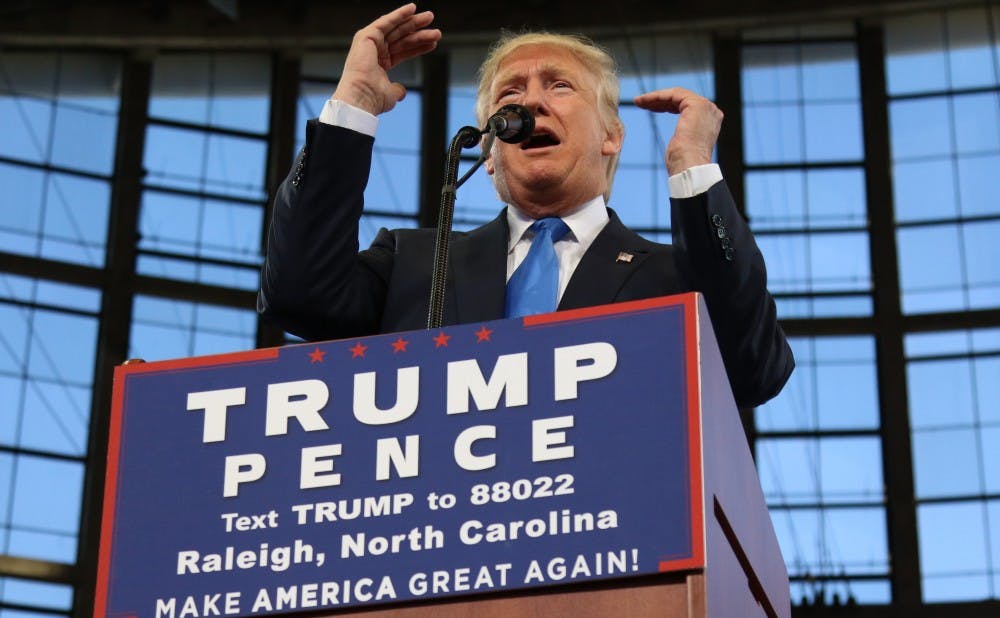The University joined an amicus brief Friday against President Donald Trump’s revised travel ban.
During his first days in office, Trump signed an executive order that temporarily banned citizens from Iraq, Syria, Iran, Libya, Somalia, Sudan and Yemen from entering the country and indefinitely halted the refugee program for 120 days. Syrian refugees were blocked for an indefinite period of time. But a federal judge blocked the ban from going into effect, and Trump eventually signed a new version. The latest order excluded Iraq from the list of countries, and only halted Syrian refugee entry for 120 days. It also dropped language some perceived as prioritizing Christian refugees and exempted current visa holders and permanent residents.
Nonetheless, a federal judge in Hawaii issued a nationwide halt to the second ban as well, a decision the Trump administration has since appealed.
Duke—along with Princeton University, Harvard University, Yale University and several other peer institutions—filed a friend-of-the-court amicus curiae brief in this challenge.
“Because amici seek to educate future world leaders, attract the world’s best scholars, faculty and students and work across international borders, they rely on their ability to welcome international students, faculty, and scholars into their communities,” the brief said. “In light of their educational missions, amici have a strong interest in ensuring that individuals from around the globe can continue to enter the United States and share their unique skills and perspectives.”
Last February, more than 80 Duke community members added their names to a letter opposing the first travel ban, and the University filed an amicus brief against original ban as well.
In the brief, the universities advance the argument that international students are a fixture of campus life, and that universities have a compelling interest in the "educational benefits that flow from student body diversity," citing Supreme Court precedent in affirmative action cases. The brief notes that 47 percent of graduate students, 10 percent of undergraduate students and 8 percent of faculty at the University are international.
However, those numbers include individuals from countries other than the six named in the executive order. According to the brief, 37 individuals are from the six countries named in the order.
Duke's endorsement of these amici briefs has generated mixed reactions among community members and alumni.
Two donors wrote a guest column in The Chronicle March 20, saying that they would cease their financial support of the University. They argued that the University was not taking seriously enough the security and safety of the country, which Trump has cited reasons for the order.
On the other hand, several students and faculty members have expressed support for Duke's actions to protect the international community.
Michael Schoenfeld, vice president for public affairs and government relations, wrote in an email that the University understands there are those with opposing view points. But he emphasized that international students were an important part of the University.
"The University has spoken out repeatedly on the importance of welcoming international students and scholars to our campus," he wrote. "This is central to Duke’s mission as a global institution. We respect that members of the Duke community will have many different points of view when it comes to controversial issues"
Get The Chronicle straight to your inbox
Sign up for our weekly newsletter. Cancel at any time.
Class of 2019
Editor-in-chief 2017-18,
Local and national news department head 2016-17
Born in Hyderabad, India, Likhitha Butchireddygari moved to Baltimore at a young age. She is pursuing a Program II major entitled "Digital Democracy and Data" about the future of the American democracy.

